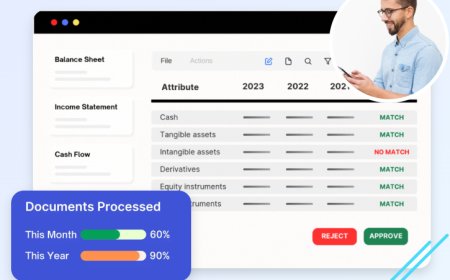South Korean Forex Traders and the Impact of the Korean Won’s Volatility
South Korean Forex Traders and the Impact of the Korean Won’s Volatility

The economic integration of South Korea into the global marketplace places the Korean won in a position where it is highly susceptible to a wide variety of domestic and international influences. Such factors as regional political play or changes in global commerce leave a significant mark on the value of the won. Because the worth of the won is unpredictable, South Korean traders are required to maintain awareness and forward thinking to take advantage of these opportunities as well as protect their well-being. With the volatility of the Korean won, a lot of traders now are engaging in Forex trading in order to minimize risks and protect their investment.
Recent times have witnessed the volatility of the Korean won escalate substantially due to various circumstances. The influence of trade conflicts, movements in the price of oil, and changes in interest rates set by leading world economies all work to place the currency under pressure to be reliably valued. The fluctuations in the value of the won make the Korean traders uncertain because sudden changes not only affect the individual investments but also affect the financial status of firms trading globally. In such an environment, the facility for Forex trading allows the traders an opportunity to respond quickly to changes in conditions and take action that can mitigate the effect of currency fluctuation.
Through foreign exchange trading, South Korean traders can diversify their risks by hedging the trading to absorb the impact of an unstable won. By allocating some of their investments to such currencies as the US Dollar or the euro, traders can reduce their exposure to the unfavorable movement of the won. Through diversification of the consequently built portfolio, traders can protect their assets from losses incurred when the local currency is falling. Forex trading additionally gives power to traders to take advantage of fluctuations in currency markets and thus achieve profits when the won is unstable. Many traders employ forex trading to deal with the vagaries of an unpredictable market environment and succeed in growing their wealth.
Incidentally, South Korean traders can access forex markets during all the 24-hour trading hours. The forex market is different from local stock markets because it provides continuous trading possibilities for a five-day week over a 24-hour period. Therefore, traders are in a position to take advantage of the rate changes anytime, be it during working hours, free time, or when they are not working. Timeliness and precision of trades are very important to traders, and as currency rates tend to change at random because of sudden disclosure of economic information or international events, the fact that markets can be traded at any day and time can make the difference to the trader.
Forex trading favors the advantage but success requires that the traders be experienced with the market and other risks involved. With the highly volatile nature of the Korean won as a currency, experienced traders should be very careful in the formulation and execution of their trading strategies and risk controls. The well-informed and well-prepared South Korean traders are better equipped to tackle the challenges in the forex market. Fortunately, a wide range of resources is available both to new and experienced traders. Brokers educate through content, tailor platforms for users, and provide customer service to make their trades and assets secure. In the current state of economic uncertainties and increased risk, the availability of such support is critical, as traders try to predict and react to market fluctuations.
In view of the continuing global economic changes and the continued vulnerability of the Korean won, forex dealings are set to become even more pivotal in the financial destiny of South Korean investors. When this market is combined with the involvement of traders and their use of resources offered by brokers, the risks of the fluctuations of the won can be mitigated, and opportunities sought through emerging global markets. Foreign exchange trading is no longer a means of protecting assets of South Koreans; it is now becoming a critical piece of financial plans. It has become indispensable for navigating the uncertain conditions of todays turbulent financial environment successfully.







































